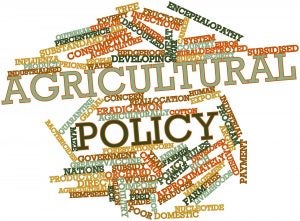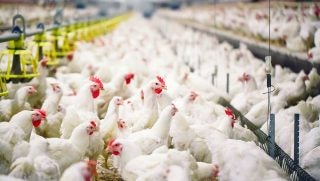Nerd alert: Star Trek is instructive when it comes to biotech regulation. Bear with me non-Trekkies.
“Enterprise,” probably the most unfairly received show of the series, chronicled the founding of the United Federation of Planets, a U.N.-esque organization committed to interplanetary cooperation. This was a prequel, before William Shatner’s Captain Kirk — and his famously bad toupee and stilted line delivery.
Becoming a player in the Star Trek universe was a rough road, thanks to the Vulcans. Human resolve both puzzles and irritates them. Beyond that, our pointy-eared friends think that we should play it safe with interstellar travel and first contact with other species. They micromanage our every move, demanding a battery of tests that take decades. Forget about leaving the nest, we might as well live in mom’s intergalactic basement forever. Eventually, some begin to wonder if we’re playing it too safe and rebel against the establishment.
It’s a perfect parallel to biotech regulation, where the precautionary principle (PP) dominates policy discussions.
The PP basically states that if a lack of scientific knowledge (at the time) can’t prove something is safe, then we’re obligated to take protective action. In other words, “better safe than sorry.” In the meantime, we gather info and reassess. As we add to the body of knowledge (reducing that uncertainty factor), protections can be relaxed.
The PP looks great on paper, but flounders in practice. It’s a crafty piece of obstructionist language. Taken to its logical extreme, if any risk exists, just assume the worst by default and run tests in perpetuity. Or perhaps the safest course of action is to not pursue at all. Indeed, this mindset has prompted a seemingly endless cavalcade of data gathering and number crunching — or outright bans.
The problem is that no amount of data, however unequivocal, will ever quench the insatiable appetite of the bureaucracy. The Vulcans would be proud.
In the quest for absolute safety, regulators (and the anti-biotech crowd) tend to overdramatize the worst case “what-ifs,” and dismiss the “can-dos.” Biotech crops have been on the market for over 20 years. During this time, they’ve been a slam dunk, reducing pesticide use, erosion, and literally saving the papaya industry in Hawaii. The next generation is slated to be consumer friendly, with nutrient fortified foods and quirky pink pineapples.
In these 20+ years, they have an unblemished track record of safety. A review of over 1,000 studies confirms that. I’d say that justifies relaxed regulations!
Although nothing is risk free, it’s been argued that it would take 10 to 100 generations of data gathering to more or less “exonerate” biotech crops. I assume a generation is 25 years. That’s an obscenely long timeframe that would never pass muster in any other industry.

There’s nothing inherently more risky about biotechnology. Conventionally bred crops typically get a free pass by regulators, owing to their natural pedigree. Yet there’s been some very sketchy creations — allergy inducing celery comes to mind.
With that said, regulations based on actual risk profiles are warranted across the board. Canada does that to a degree, where product of mutagenesis (dose with radiation and see what you get — think Ruby Red Grapefruit) are regulated alongside biotech crops.
There’s no doubt that the PP is fundamentally flawed. Besides its nearly singular application to biotechnology in agriculture, it relies on weasel words — like biotech “could” cause harm — as a platform for overbearing interventionism. Anti-biotech extremists have conveniently hidden behind the façade of the PP to legitimize their agenda. Laughably, they have no compunction about ransacking field trials of biotech crops in protest. But how can we ever gather the volumes of data they push for? Of course, they’re not interested in a giving these crops a fair shake.
There are also the perverse effects that the PP renders on the most vulnerable. Golden rice has been mired in regulatory purgatory for over a decade. Other open source seeds will have a near insurmountable time satisfying the PP’s prescriptions. And the regulatory framework overlaid on the PP is costly, costs that only major industry players can bear. This just reinforces the “big ag” narrative used to smear biotech.
Try as we may, we can’t foresee every contingency, but risk is not unique to biotech. It’s time to take the training wheels off and let it shine.
Tim Durham’s family operates Deer Run Farm — a truck (vegetable) farm on Long Island, New York. As an agvocate, he counters heated rhetoric with sensible facts. Tim has a degree in plant medicine and is an Assistant Professor at Ferrum College in Virginia.



